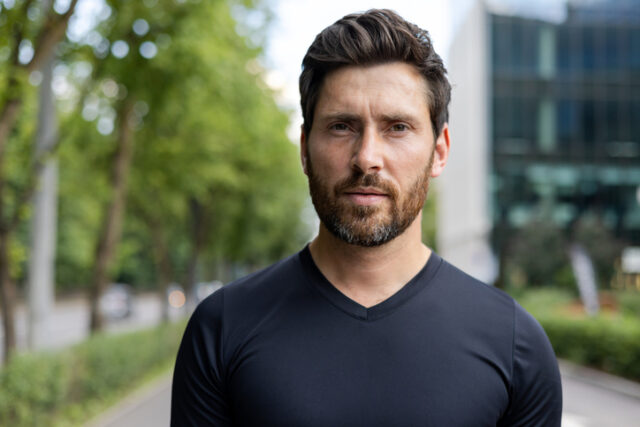Degrees open doors, but once you’re through them, it’s the understated skills—the things you can’t hang on a wall—that determine how far you actually go.

These aren’t just professional assets. They shape your relationships, your well-being, your confidence, and your ability to navigate whatever life throws your way. They don’t come with certificates or graduation ceremonies, but when you develop them, they carry you further than qualifications ever could. If you haven’t honed these abilities, now’s the time.
1. The ability to regulate your emotions in tough moments

Keeping your cool when everything in you wants to snap, shut down, or lash out is a skill that takes years to build. It doesn’t mean ignoring how you feel. It means choosing how to express it in a way that doesn’t burn bridges. This one skill changes how you handle conflict, how people trust you, and how much energy you save by not getting dragged into every storm that passes through.
2. Knowing when not to take something personally

People say and do things for all kinds of reasons, and a lot of them have nothing to do with you. Learning how to separate someone’s behaviour from your self-worth gives you so much freedom. That doesn’t mean becoming emotionally detached. It’s about staying grounded enough to recognise when someone’s frustration, silence, or criticism isn’t a reflection of your value.
3. Knowing how to listen without interrupting or planning your next line

Truly listening is one of the rarest things people do. Most of us are just waiting for our turn to speak, sadly. However, being someone who makes other people feel heard without jumping in or hijacking the conversation builds trust quickly. This skill makes you someone people open up to—and not just at work, but in friendships, partnerships, and family too. It creates space for honesty, and in return, people give you more honesty than they do most.
4. The habit of following through on what you say

Being reliable doesn’t make headlines, but it builds serious respect everywhere you go. When people know they can count on your word, you stand out in all the right ways, especially in a world full of last-minute excuses. It doesn’t mean you have to be perfect. It means you follow up, communicate clearly, and value integrity over ease. That kind of dependability travels further than credentials ever will.
5. Being able to stay curious instead of defensive

When someone challenges you, it’s easy to feel attacked, but curiosity changes the game. Asking “What makes you feel that way?” or “What am I missing?” turns conflict into a learning moment—not a battlefield. This approach not only helps you grow, but also disarms tension. It makes people feel safe disagreeing with you, which is rare, and powerful.
6. Holding your boundaries without guilt

Saying no, setting limits, and choosing yourself doesn’t make you selfish—it makes you self-aware. However, guilt often creeps in, especially if you’ve been raised to keep the peace or overextend. The real skill is learning to hold your ground calmly, without explanation, and without needing everyone to like it. Boundaries keep your energy clean, and after a while, your relationships healthier too.
7. Knowing how to self-soothe when things fall apart

When things go sideways—emotionally, financially, or otherwise—some people spiral, and some steady themselves. That steadiness comes from learning how to comfort yourself in hard moments. This might look like pausing to breathe, stepping outside, journaling, or recognising patterns instead of reacting to them. It’s a quiet form of strength that helps you move forward without needing immediate solutions.
8. Making other people feel seen without turning it into a performance

Genuine kindness is quiet. It’s a thoughtful message, a sincere compliment, a moment of paying attention when someone clearly needs it. You don’t need an audience or a pat on the back to make someone feel acknowledged. People remember how you made them feel far longer than what you achieved. That kind of emotional presence leaves a legacy no degree can touch.
9. Knowing how to pause instead of overreact

Whether it’s a nasty email, an offhand comment, or a feeling of being misunderstood—it takes real control to hit pause before firing back. That pause gives you options that impulsive reactions steal from you. It doesn’t mean you ignore the issue. It just means you respond from intention, not impulse. That one-second delay often makes all the difference.
10. Seeing patterns in your own behaviour

Self-awareness isn’t just knowing your strengths. It’s being honest about your triggers, your habits, your defaults, and how they show up in daily life. That ability helps you course-correct in real time. You stop repeating the same dynamics in work, relationships, and self-talk. You learn, adapt, and grow—calmly but powerfully.
11. Being okay with not knowing everything

Confidence doesn’t come from having all the answers. It comes from being secure enough to say, “I don’t know, but I’ll find out.” That openness makes you better at learning, collaborating, and leading. This is the kind of humility that builds long-term trust. People don’t expect perfection; they want someone real, and willing to keep learning.
12. Staying consistent when no one’s watching

The way you treat people when it doesn’t benefit you, the way you keep your word when there’s no recognition—that’s where character lives. It’s not glamorous, but it’s foundational. Degrees might open the first door. However, this kind of integrity keeps the doors open, and earns you respect, even in rooms where nothing is said out loud.
13. Letting go of what you can’t control

This one sounds simple, but in practise, it’s tough. So much energy gets wasted trying to fix things that aren’t ours to carry—people’s opinions, the past, the future, the what-ifs. The ability to say, “This is not mine,” and redirect your energy back to what is in your hands is an underrated form of wisdom. It clears the mental clutter and brings peace faster than any external achievement ever could.




